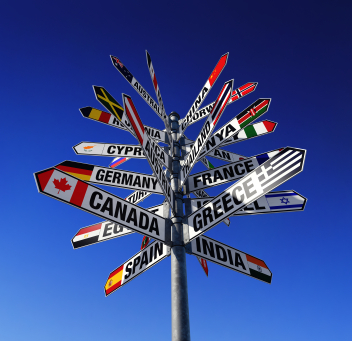Interesting Reaction to My Talk

I had the privilege recently of speaking at the Human Resources Professional Association of Ontario annual meeting, in Toronto to a group of HR leaders, all of whom deal with international workforces, diversity within their own offices, as well as dealing with customers and employees located in several distinctly different cultures. They had signed up for my talk because all of them, in some way or another, were struggling with reaching out to, and engaging with employees and customers with different cultural backgrounds. These HR professionals wanted to ensure they were doing all they could to form solid business relationships with people who didn’t share similar cultural backgrounds.
I approached the HRPAO talk as a chance to give as much information as I could in a short timeframe, but in a way that would be easy for the attendees to put into practice. I wanted to hit a lot of important points, but not overload the attendees either with too much information.
As usual, during the talk, making eye contact with most of the attendees in the conference room, circulating and working the crowd somewhat, I began to notice something. Most of the attendees had relaxed expressions, they laughed when I’d hoped they would, the smiled when a humorous comment worked as it should, and they reflected my emotion for the most part.
However, a younger woman who had identified herself earlier as hailing from Korea seemed to be quite upset. She wore an expression of intense emotion during my speech, and seemed to be flushing a little. She pursed her lips, her eyes darting to the screen and then back to me, and my thought was, “Well, here’s someone who does not agree with my findings and my experiences. Here’s someone who’s about to give me an earful when I give her the chance.”
I was intensely aware of her agitated expression as I finished up the talk, and began to organize my things. A small group of people had formed directly opposite the podium to speak with me and I took a quick drink of water and moved over the greet them. The woman from Korea was among them. “Here we go”, I thought to myself.
The first gentleman to ask a question identified himself as being from Kenya. He had enjoyed the talk and wanted to glean more info on a certain aspect of it. The second gentleman to ask a question was doing some government work with First Nations groups, and felt that some of what I had presented was applicable to the work he was doing. The third individual was a woman working with a diverse workforce in the Toronto area and she simply wanted more in-depth information on one aspect of my talk.
The last person to speak was the Korean woman. She still seemed upset, or frustrated, or maybe both. I assumed she had taken issue with something I had said, or possibly a comment I had made about the etiquette of building a relationship in Korea for first-timers to the Orient.
Well, I was wrong. She started to tell me her story. She was about to embark on an MBA at a large Canadian school. She had only been in Canada for a few years, even though her English was excellent (and certainly a lot better than my Korean!). She appreciated the talk I gave and then told me she was worried. She was upset because she was very apprehensive about starting the MBA at the Canadian school because she felt she wouldn’t fit in. Almost in tears at this point, she mentioned she’d been reading as much as possible about Canadian culture and practicing her English, but with the constant fear of failing out or encountering problems due to cultural differences! She had enrolled in my session as one step in a journey to understand cultural differences, and the effect they have on interactions in the business world. We talked for a few minutes, I answered some questions, saw her relax somewhat, and wished her well. In my opinion, she will do just fine and will learn a great deal from her Canadian post-grad experience.
Once again I was reminded of the nervousness, anxiety and pressure that can occur when cultural differences are encountered. Even in a bright individual with prior experience, working in a culturally different environment can cause huge stress, sometimes without the individual knowing where that stress is coming from.
That’s why my core message in all my training sessions is the same – with a little knowledge, a little practice, and a little awareness, people can relax, understand each other’s intentions a bit better, and get more done, more quickly, saving time and money.
And that’s what Solve the Culture Puzzle! is all about!

